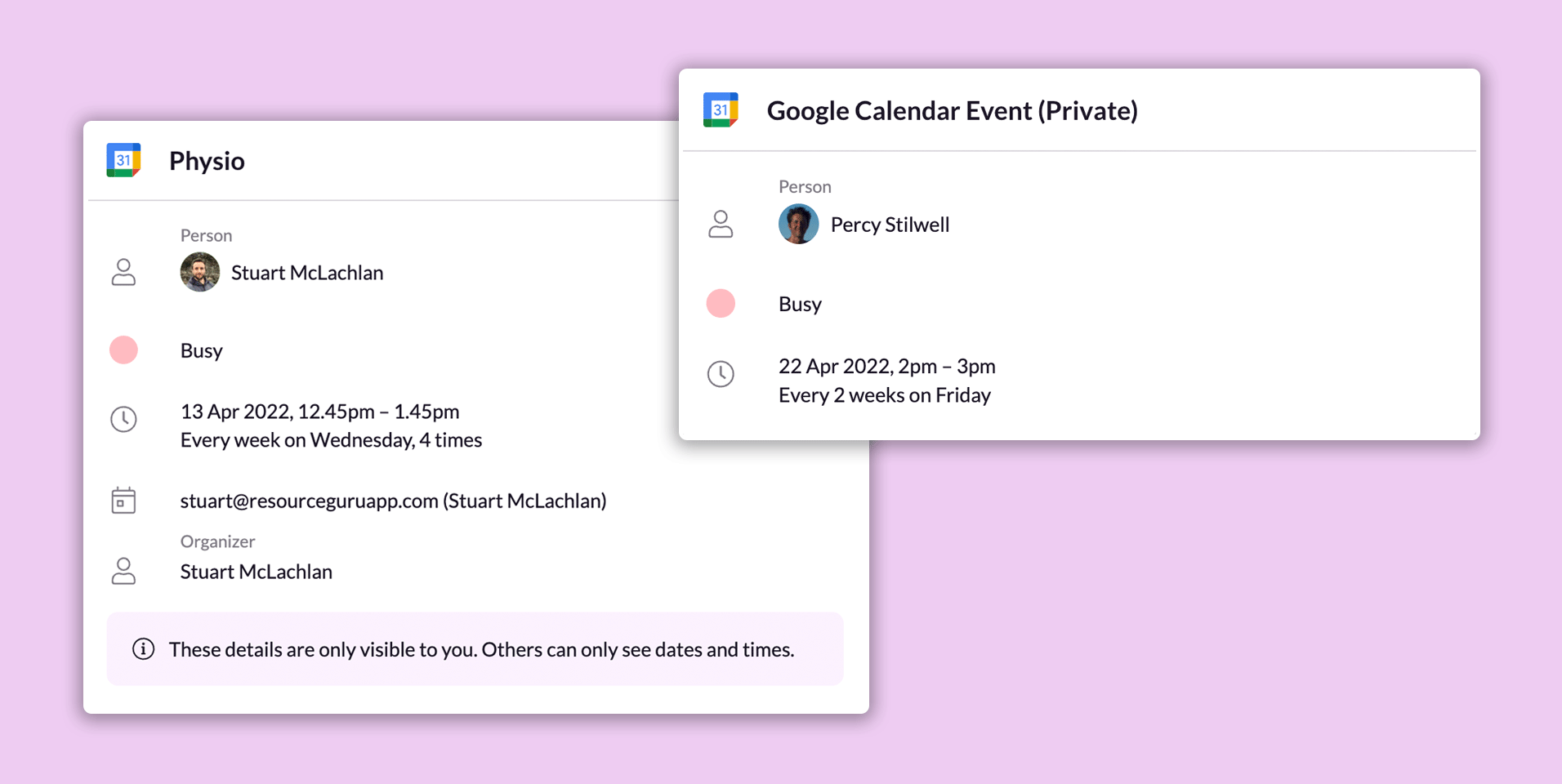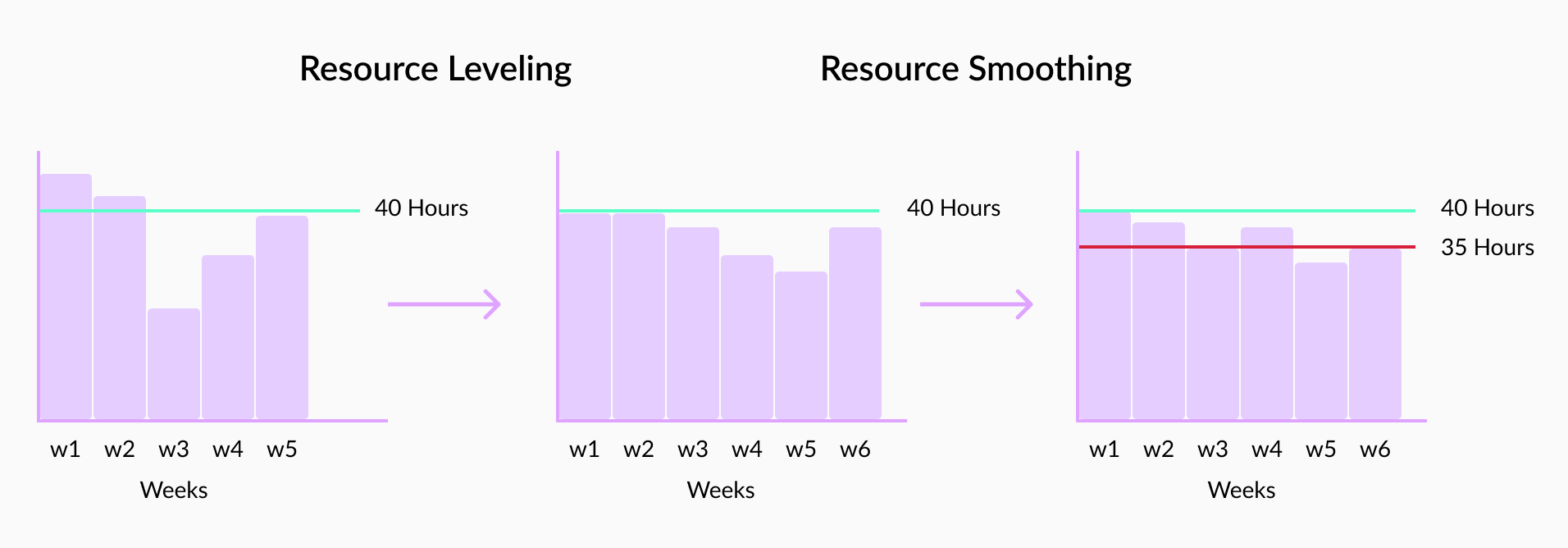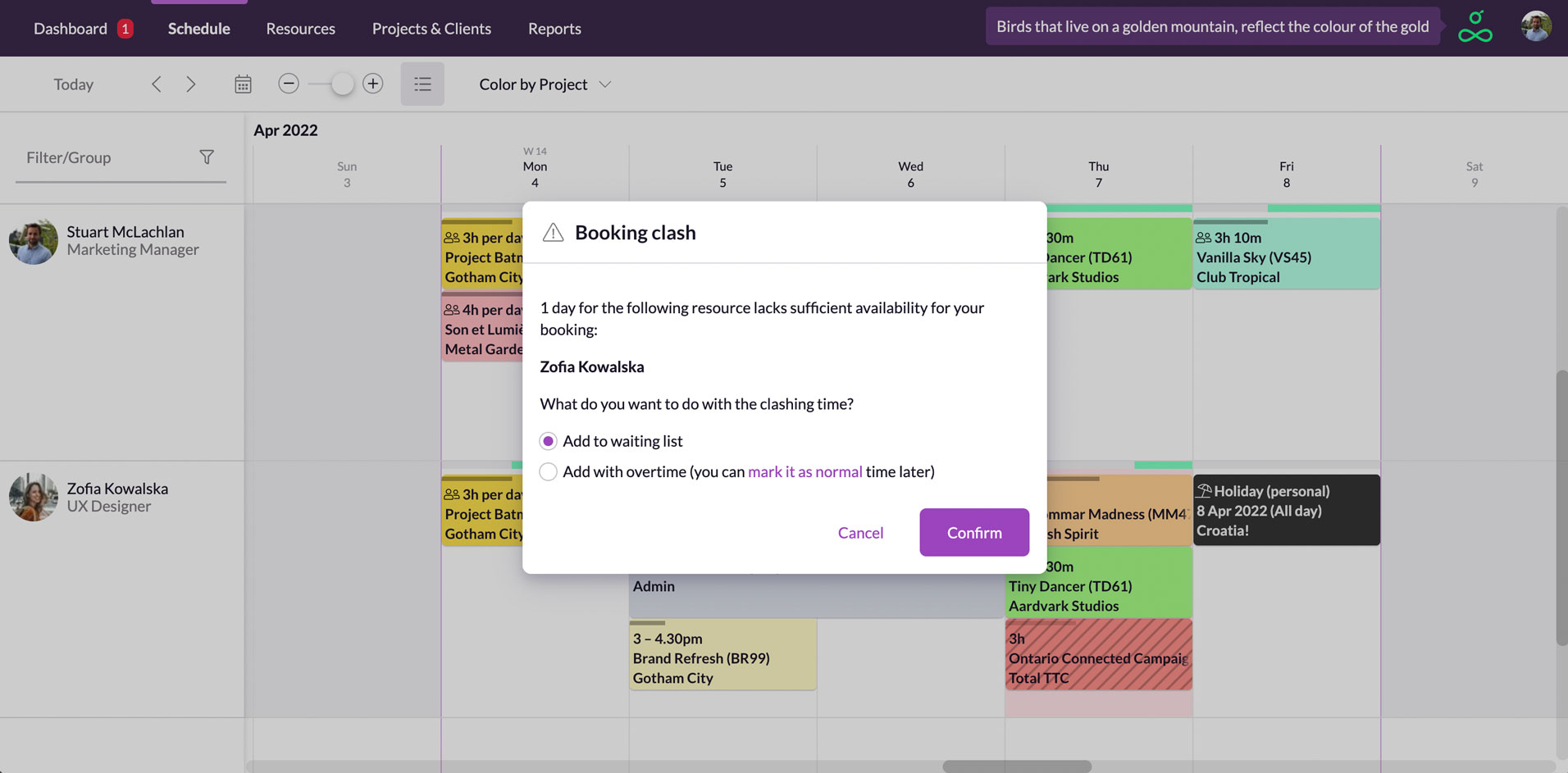Research shows the many benefits of visual decluttering – better focus, higher productivity, and greater mental well-being. The same benefits of organizing your home apply to organizing your work calendar.
They are a visual representation of our work lives. Nothing can set off anxiety faster than looking at a calendar that’s overbooked and has no gaps scheduled to catch up on administrative tasks or just get a mental break.
But it’s even worse when work calendars don’t tell the complete story. People’s commitments over a day or a week are often split up between their personal and work calendars, like medical appointments or parent-teacher meetings. You can’t balance workloads and schedule the people you need if you can’t see all the relevant information in one place.
Imagine trying to schedule busy executives and team members with multiple calendars, overlapping meetings, and varied time zones. The situation gets even more unwieldy when you have a larger team – without a tool to manage the scheduling and update calendars in real-time, you are more likely to overbook people.
Fortunately, there’s a smarter way to manage calendars across your team: two-way calendar integrations that connect multiple calendar systems into a single group calendar.
With this single source of truth, you gain an accurate and up-to-date picture of your team members’ availability. This makes it easier to schedule teams and avoid overbooking people – a key reason for burnout and employee turnover.
In this article 📖
1. Complete visibility makes resource scheduling easier
Resource scheduling is an enormous task, and the success of your projects and business initiatives depends on how efficiently you utilize employee time. A fully synced group calendar gives you an instant view of everyone’s shared bookings – personal or work-related – which you need for hassle-free scheduling. This helps you avoid surprises and spot conflicts ahead of time.
For example, if you need to bring leadership together to discuss a new DEI initiative, you don’t want to book over a scheduled doctor’s appointment an executive may have on their personal Google calendar.
With an integrated group calendar, you see right away that they have a conflict, though the reason can (and often should) remain private – in Resource Guru, when team members view someone else’s private calendar event it simply shows that the person is busy.

Resource Guru offers a two-way integration with Google Calendar so you can sync multiple calendars into a single team schedule.
With this kind of tool, you can avoid double-booking your team, which saves them from rescheduling personal commitments and saves you from the hassle of finding a new time for everyone to meet. Plus, team members won’t be surprised by unexpected meetings that interrupt their workflow.
A group calendar takes the mental work out of finding a day/time that works because the software will show you options that work for everyone. Plus, when you say goodbye to errors and overlaps in booking with a shared calendar, you can focus on hitting deadlines and enjoying your work.
2. Two-way sync saves time and boosts productivity
Project managers are already strapped for time. Chasing status updates, documenting project details, and keeping everyone in the loop while keeping a project within deadline is time-consuming.
Manually juggling and updating calendar items across teams just drains more of this valuable resource. An integrated group calendar is perfect for saving time on this administrative task and scheduling employees without overbooking them.
Our guide to resource management will help you ensure your iron triangle – budget, schedule, and scope – stays in balance and your project stays on track.
For example, if a designer on your team has blocked two weeks of vacation time, an up-to-date group calendar will tell you that you either need to book another designer for the project or hire a freelancer. An imbalance in your team calendar will directly impact one or more of the factors in your iron triangle.
Scheduling should be easy, not an arduous task that claims much of your concentration. But since the start of the pandemic, it’s actually become harder for our brains to focus on a task. This inability to concentrate hinders productivity. Using scheduling tools like a group calendar can help you take the first step toward reclaiming some of your lost productivity.


“With the Guru software we get better insights into our daily planning. Great tool & easy to use.”
3. Transparency helps you manage workloads so employees can recharge and learn
Your group calendar is a visual representation that can immediately notify you that someone has a lot on their plate, or not enough, before you even go to calculate their actual utilization rate.
This transparency is vital in helping you manage workloads and conduct what’s known as resource smoothing – booking employees for fewer hours than they are expected to work in order to create buffer time.

This less-than-100% utilization rate actually benefits both employees and organizations in the long run. Here’s the reasoning:
Employees want a workload that keeps them occupied and energizes them, but also gives them the time and space to grow in their jobs. In fact, 76% of Gen Z employees view learning and development as the tool that will help them succeed in their careers. More than half of millennials and Gen X employees think similarly.
When you leave room in an employee’s workday, they can use it to take an online course or read up on a new feature related to the task they are performing. In the long run, this helps them upskill, and your company reaps the return on investment on that “free time” on their calendar.
In addition, an aligned calendar empowers employees to take their vacation days and recharge – which is beneficial for their mental health and company productivity.
If everyone can see your vacation days automatically, the scheduling process becomes easier and you don’t feel guilty or awkward saying that you are unavailable for a project or a meeting. Your calendar speaks for you!
4. Better capacity planning leads to happier employees
When you prevent overbooking, your employees become more engaged and are less likely to burn out. This happiness is paramount to the overall well-being of your organization.
The pandemic opened our eyes to work-life balance and helped us reprioritize how we spend our time. With this new awareness came the Great Resignation – employees are saying no to long hours and toxic workplaces. To retain the employees you worked so hard to hire, you need to streamline their workflows.
A group calendar combined with Resource Guru’s innovative clash management engine alerts you when there’s a scheduling conflict.
When you spot a clash, you can either go back and edit the booking, bucket it in overtime or add the booking to a waiting list. Waiting list entries are displayed on your dashboard as well as in project forecasting reports, making your capacity planning and task management that much easier.

Lean on a group calendar for greater accountability
We all wish for a wizard who would magically carry our team projects to fruition. The next best thing is to use a group calendar that gives you a full picture of team availability and helps you spread out resources evenly. This ensures employees remain engaged and know exactly what is expected of them.
Setting clear expectations that can actually be met leads to greater accountability among your team because your schedule is based on the reality of team capacity. You’re not just sticking things in a calendar and hoping it works.
Read all about our two-way Google Calendar sync.





